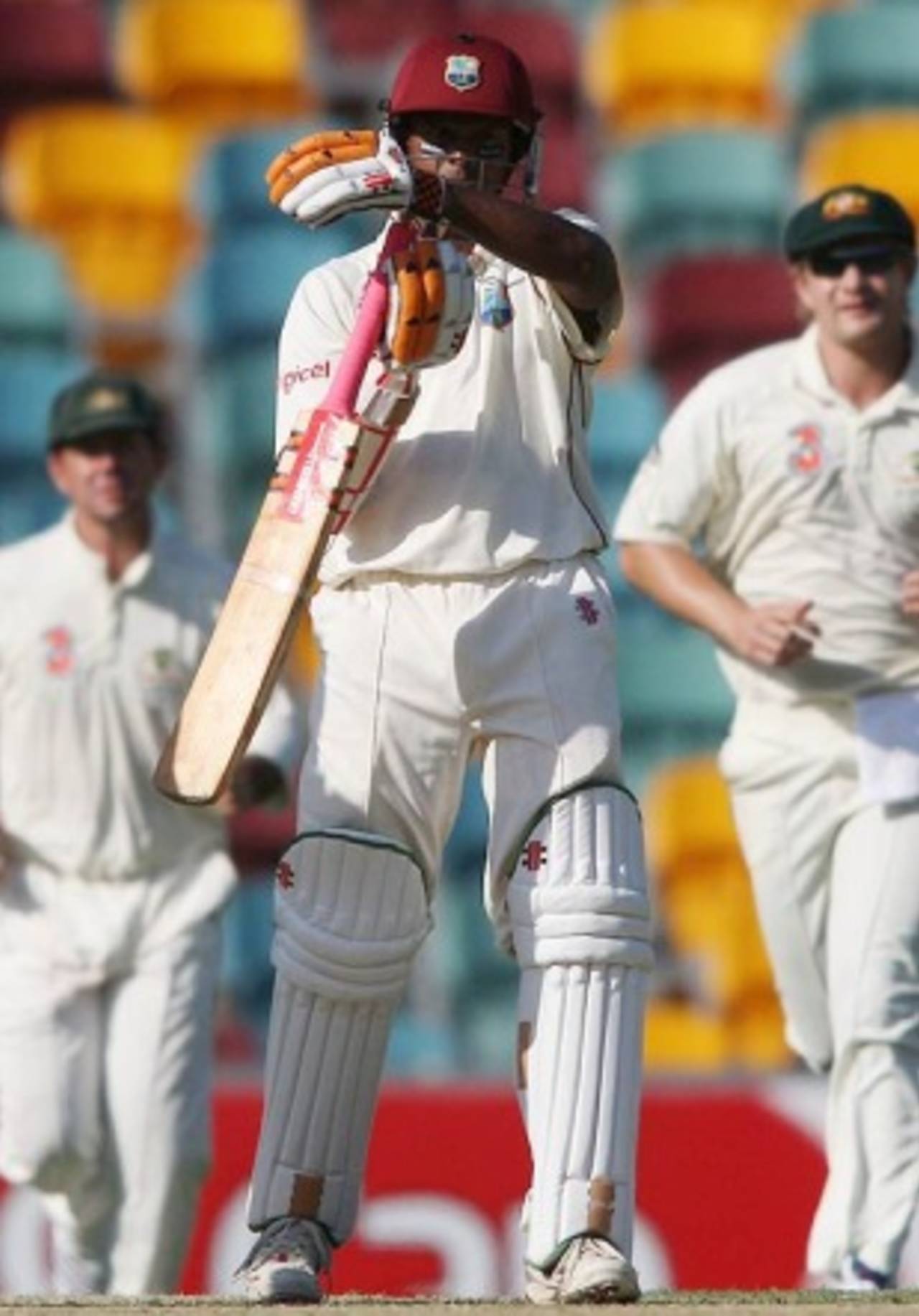Captains sceptical about use of reviews
The ICC claims the majority of players are in support of the umpire decision review system (UDRS), but judging by the evidence from the England and South Africa camps ahead of their Test series, they still have some convincing to do
Andrew McGlashan at Centurion
Dec 15, 2009, 2:30 PM

Shivnarine Chanderpaul's recent experience with UDRS has dented confidence in the system • Getty Images
The ICC claims the majority of players are in support of the umpire decision review system (UDRS), but judging by the evidence from the England and South Africa camps ahead of their Test series, they still have some convincing to do.
Both teams have been briefed by Dave Richardson, ICC's general manager, about the new technology in use to try and get across the aim of the system, which now includes ball-tracking software. However, in this series Hotspot - which caused controversy during the recent Australia-West Indies Test in Adelaide when an edge from Shivnarine Chanderpaul was unclear - won't be available because the cash-strapped host broadcaster, SABC, aren't able to cover the costs.
Richardson was at pains to stress that the UDRS isn't designed to cut out the marginal errors, rather the howling mistakes, and for that reason the players must go about the process sensibly. However, Graeme Smith was far from enthusiastic about the plans which will leave him with even more decisions to make.
"At the start of the series, I have my doubts. It needs to prove its worth to me," he said. "We had a few frustrations with it in the last series against Australia. We felt that it probably caused a few more frustrations than added value.
"But we're told it does improve the standards of the game, so we're going to go along with it and be positive about it - and try to use it to the best of our ability. But I'm a little bit sceptical ... we'll see how it goes through the series.
"I guess the responsibility ultimately falls on the captain," he added. "The ICC are going a long way towards making our jobs a lot more difficult these days. I will take the advice of players - if you can trust your bowlers.
Smith's opposite number, Andrew Strauss, hopes to learn from his experiences of the earlier incarnation of the system which was used when England toured West Indies in February and March. There were a number of controversial moments during that series, including a vital reprieve for Ramnaresh Sarwan at Sabina Park when the TV umpire didn't have access to a full picture on his monitor.
"You have to be smart about how you use it and having experience probably helps you in that respect," Strauss said. "I'm trying to cast my mind back to how things worked in West Indies and what lessons we learned.
"We've got to go out there and trial it, and there are some reservations about it. From some of the games recently, the initial reservations I had haven't gone away, but it's there and maybe the more we use it the better it will get. You can't rule something out completely until you have tried it."
The TV umpire's technology has since been upgraded to ensure the best possible images are available and Richardson wants the process to be given a fair chance. "This will definitely diminish controversies over umpiring decisions," he said. "The biggest danger is that people are not prepared to give it the time needed to come to terms with it and they write it off before the system can prove itself to its full potential."
However, the ICC did have one voice of reasonable support from Stuart Broad, who has been known to lose his cool when umpiring decisions go against him. As a fast bowler keen to get justice for his exertions, he is willing to give technology a chance.
"It is a strange feeling when you feel like you've got a wicket then it gets referred," he said. "But I'm happy to see technology in the game if it helps the big decisions that can change the course of games and series, so long as it's right."
Steve Davis and Aleem Dar are the on-field umpires for the first Test while Amiesh Saheba, from India, will be in the man in the TV hot-seat. It will be the first time Saheba has been in the third umpire's position for the UDRS and he will be under scrutiny as much as the men in the middle.
Andrew McGlashan is assistant editor of Cricinfo